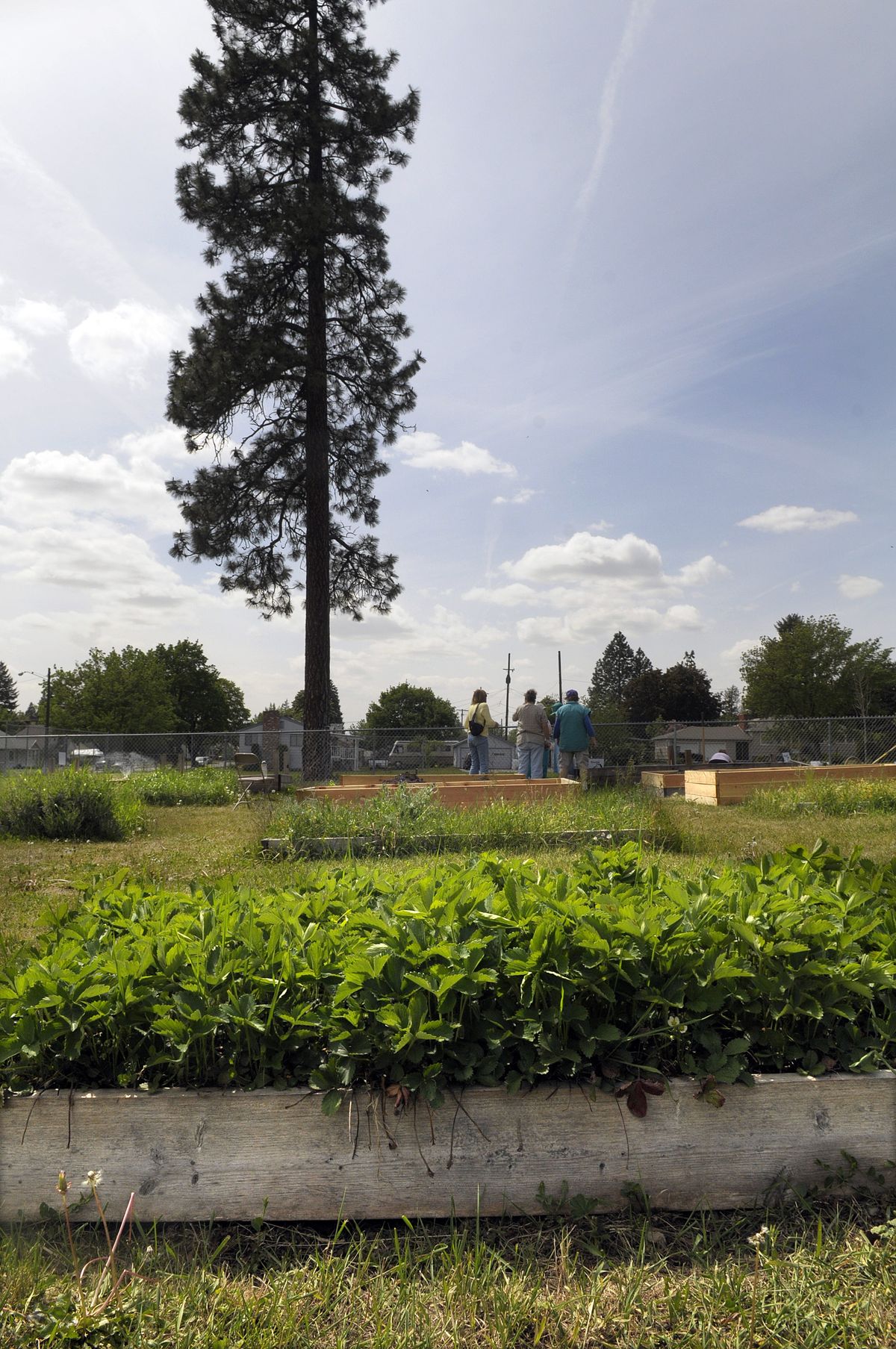In this garden, hope is plentiful
Growing Hope Gardens offer support to women in Transitions program

On Spokane’s North Side, there is a special garden that fills the ladies who work in it with hope and enthusiasm.
As they plant, weed, water and harvest, they also are in the process of overcoming the adversity that life has thrown their way – obstacles like homelessness, domestic violence, mental illness or substance abuse.
This is made possible through their participation in programs offered by Transitions, a nonprofit agency helping women in need.
The Growing Hope Gardens, at the intersection of Fairview Avenue and Hemlock Street, is a Transitions project that began last summer. This community garden, which is shared with other local gardeners, was initiated by Sr. Sheila Fitzgerald, Transitions’ coordinator of social enterprise, as part of the development of a job-training program.
“The garden project is an ideal component of the Transitions program,” Fitzgerald explains, “because it contributes to the healing process and provides a sense of being connected to something that is growing and producing.
“Each woman discovers she is a creative person who can affect others in a positive way by what they do.”
The women have a strong support team. With a grant from American West Bank, Fitzgerald was able to hire garden coordinator Kathy Speller this year. Speller transports the women to and from the garden, organizes planting tasks and gives them the guidance they need to grow a successful garden.
Master Gardener Jan Baker, who lives nearby, comes to the garden every week to answer questions. Marilyn DeCoster volunteers at both the Women’s Hearth, a drop-in day center, and in the garden.
“We have the joy of watching something grow,” Speller says. “We all jumped up and down when our seeds started sprouting a few weeks ago.”
They began with eight raised beds last year and added three new beds this year with lumber donated by Ziegler Lumber Co.
“They were great,” Speller says. “All I had to do was ask. That’s just how Spokane is – very giving.”
Fitzgerald’s goals for the garden include adding a small greenhouse and storage shed to the site, designing a composting system and developing a marketing potential for the produce grown by the women.
This year, they are growing tomatoes, summer squash, pumpkins, strawberries, lettuce, cucumbers, corn, Swiss chard, radishes and watermelons. They also have a worm bin so they can compost their kitchen scraps to build up the soil. Transitions provided garden tools and others donated seeds and seedlings.
The produce from the garden is shared with the homeless and low-income women at the Women’s Hearth and with New Leaf Bakery Café. New Leaf, at 12 E. Fifth Ave., is a Transitions job-training program that teaches women the skills needed to work in the food service industry.
On a recent afternoon, several ladies from the Women’s Hearth gathered to work in the garden.
“I helped out with the garden last year,” Gloria Bost says. “I love being out in the fresh air. And this gives me something to do to stay out of trouble,” she adds with a grin.
Becky Wells is enthusiastic about this year’s garden.
“I used to enjoy gardening as a kid. I enjoy helping life grow,” she says. “It’s fun and healthy to eat homegrown vegetables so I can’t wait to see it all coming up.”
Even though Sabrina Rookey hasn’t gardened for several years, she also enjoys her time in the garden.
“It’s peaceful, there’s no noise, it’s very therapeutic,” she says. “It gives me something positive to do with my time.”
Fitzgerald points out that during the growing season, the women see the struggles a plant goes through in order to live.
“It teaches them that they can overcome obstacles, too,” she says. “They discover they have the power within themselves to overcome these things.”
The garden project has been well-received by the women who work in it, adds Fitzgerald.
“We want to provide opportunities for the women so they can feel a sense of accomplishment,” she says. “When they started harvesting from the garden last year, it gave each of them a feeling that ‘I can give back, I can share with others.’ ”
“It made them feel so proud. They weren’t sitting there waiting for someone to give them something. Instead, it taught them that they can give back to others.”